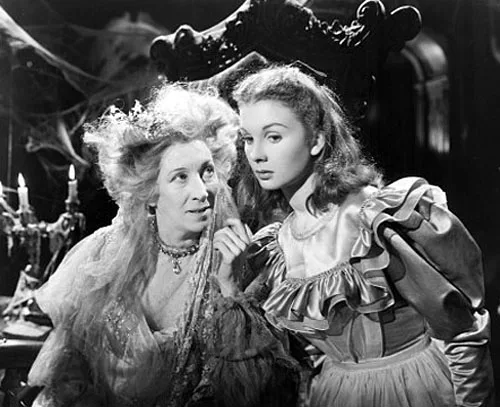Post watershed Dickens completely misses the point
THERE is a darkness at the heart of Dickens that's easy to overlook. It underpins every one of his stories.
Why else do West End musicals pivot on a scene in which a young woman is murdered by her psychotic partner?
How else to explain why the most Christmassy Christmas story ever written has a scene in which a crone boasts about pinching the curtains from a man's death-bed - with the body still in-situ?
People who say "let's darken Dickens" are right up there with those proclaiming "let's make fairy tales scary", they've just not done the reading. Quite literally.
Which brings me to Steven Knight's new attempts to do a "gritty Great Expectations". I confess I was puzzled by this framing of a book which starts with an orphan boy in a graveyard surveying the graves of his dead relations.
What quickly became apparent is that the new version, rather like Knight's similarly "adult" take on A Christmas Carol a couple of years ago, has raided the BBFC guidelines for content. In the first couple of episodes he manages to shoe-horn in some swearing, drug addiction and a visit to the local prostitute.
More than a few reviewers have likened the show to Knight's breakthrough hit Peaky Blinders, although I'm not sure whether this says more about their limited reference points or Knight's range as a writer.
I can't believe anyone who watched the Birmingham-based crime drama would have declared, on first viewing, "blimey this is just like Nicholas Nickleby, but with gangsters". Which suggests to me the two worlds are not natural bed fellows.
Perhaps for a cash-strapped BBC it's now easier to commission something by the bloke who did that thing with Cillian Murphy in it than simply rely on the name recognition of, well, Charles flipping Dickens.
If so this is a pretty depressing stuff. By the age at which Knight tasted his first real success, the novelist had written more than a dozen classic novels, cracked America and was in the twilight years of his career.
If I sound defensive here it's because I do bridle at the suggestion that Great Expectations - or indeed any Dickens novel - needs to be made identifiable for a 21st century audience. These are stories of gaping inequalities, grave injustices and people somehow trying to enjoy life in between. If those are not tales for our times you haven't been paying attention.
Yet broadcaster Jane Garvey, in this week's Radio Times, apparently delighted in the fact that the new twist on the tale would upset purists.
In her defence of the new series she appears to argue that Dickens' books are so damn impenetrable no-one who didn't have to study them at school would bother, but also that they've been brought to the screen so many times the tales are at risk of becoming stale.
This line of reasoning is rather flawed because if, as she claims, the original novels are such hard-work why have they been eagerly adapted so often? And almost exclusively in a manner which hasn't meant working in a bit of sadomasochism.
Now, in fairness, I'm willing to admit that fans can risk acting as gatekeepers, dismissing any deviations from the source text as heresy. Or insisting that only those who have read the words on the page are real devotees.
The problem here of course is that such a jealous guarding of anybody's work is removing opportunities to open up the stories to new audiences via slightly different media.
I'm just not sure this is the case here though, not least because repackaging one of our most famous works of fiction as a post-watershed production actually massively reduces the number of people who can see it.
I'm not naive enough to think that there are great swathes of 11-year-olds who, as my Nana did, are devouring volume-by-volume Dickens' original works. But there's doubtless more than a few who, like I did, could discover the author through a screen adaptation.
I still remember being enthralled by a late 90s take on David Copperfield, starring a pre-Harry Potter Daniel Radcliffe and Bob Hoskins. Catching an omnibus edition over Christmas and loving it meant that when I finally did approach the books in my late teens it was with anticipation rather than dread.
Had that version been beamed out at 9pm, in order that Micawber could call Uriah Heep a "fucking liar", I might well have been denied that.
Which would have been a crying shame, because the darkness in Dickens is the sort of material it's no bad thing for children to be aware of.
It's easy to forgot that A Christmas Carol, for all its festive trappings, started life as a full-throated attack on poverty in England.
Scrooge's staunch defence of the workhouses and the Poor Law earlier in the novel is turned on its head later in the book when he is confronted with the wraith-like children known as Ignorance and Want. When he begs the Ghost of Christmas Present if anything can be done, the spirit deftly turns his own words back on him.
It's a powerful scene, far more powerful - far more adult possibly - than lobbing some rough language and opium into the mix.




Comments
Post a Comment